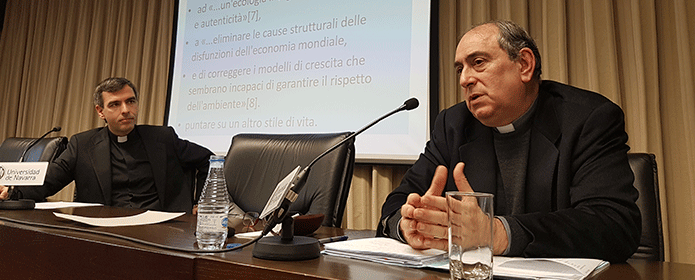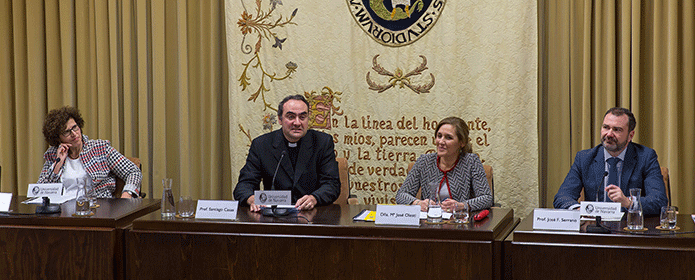P. Fernando de la Iglesia Viguiristi S.J.: "The UN has been approaching the formulations of Pope Paul VI, thirty years later".
The professor of the Pontifical Gregorian University gives a lecture at seminar at the School of Theology on the occasion of the 50th anniversary of the encyclical Populorum Progressio.

"Although the vision of Pope Paul VI is far superior, we see how the program of development of the UN came closer to his formulations thirty years later". Fernando de la Iglesia Viguirisiti S.J., professor at the Pontifical Gregorian University (Rome), at the seminar "The vision of development in the Social Doctrine of the Church. A los 50 años de Populorum Progressio", given at the School of Theology of the University of Navarra.
Throughout his intervention, the expert in Economics and Social Doctrine of the Church analyzed the main points of the encyclical letter of Paul VI, Populorum Progressio, 50 years after its publication. As he has stated, the statements of this document generated great controversy, even linking the Pope with Marxism. "Nothing could be further from the truth," he said. On the contrary, he maintains that "in this work we can clearly see a proposal for promote the development, a mixed proposal in which it is necessary to let market forces act, but with some control mechanisms, so that the public authorities can guarantee its correct functioning and thus generate wealth".
Likewise, said the Professor of the Church, Paul VI analyzes the causes that compromise the development and points to forgotten realities "that need profound reforms, to avoid the temptation to resort to revolutionary violence". Among other issues, the Pontiff defends in his encyclical the need to send technicians to third world countries.
After this document, according to the expert, the Church's social doctrine will still go through difficult times, but it is recovered and boosted with the pontificate of John Paul II, who gives it a theological character. It is this Pope who "sees a great opportunity to celebrate Populorum Progressio as an instrument of Evangelization".




